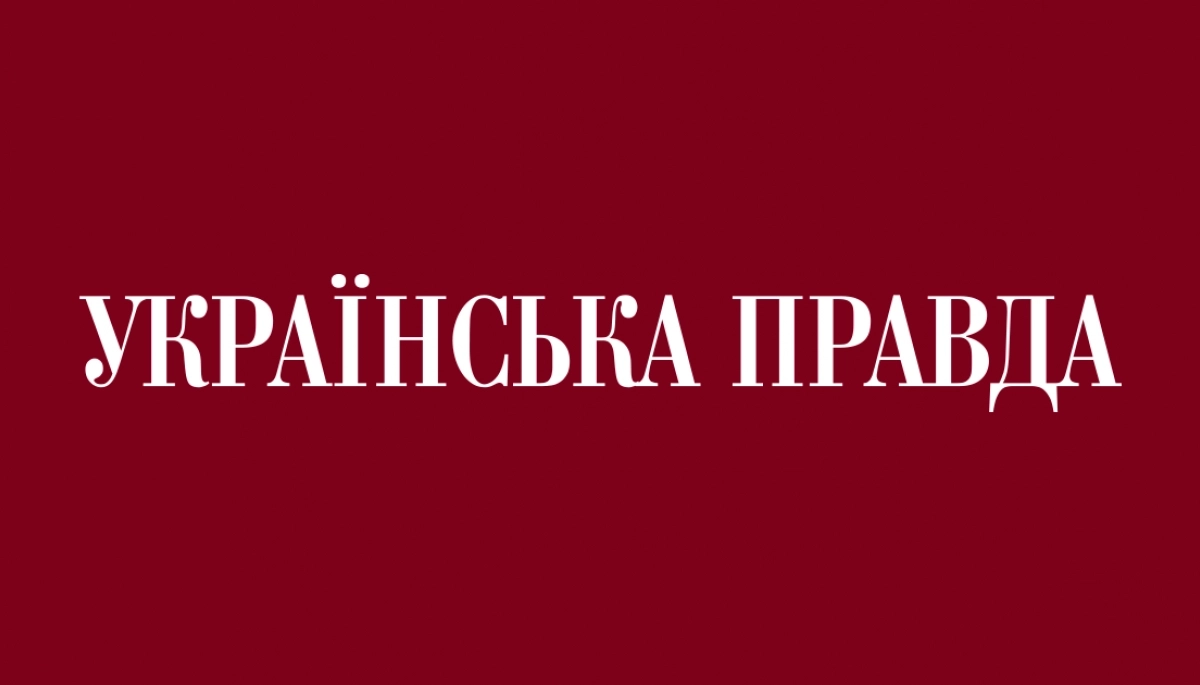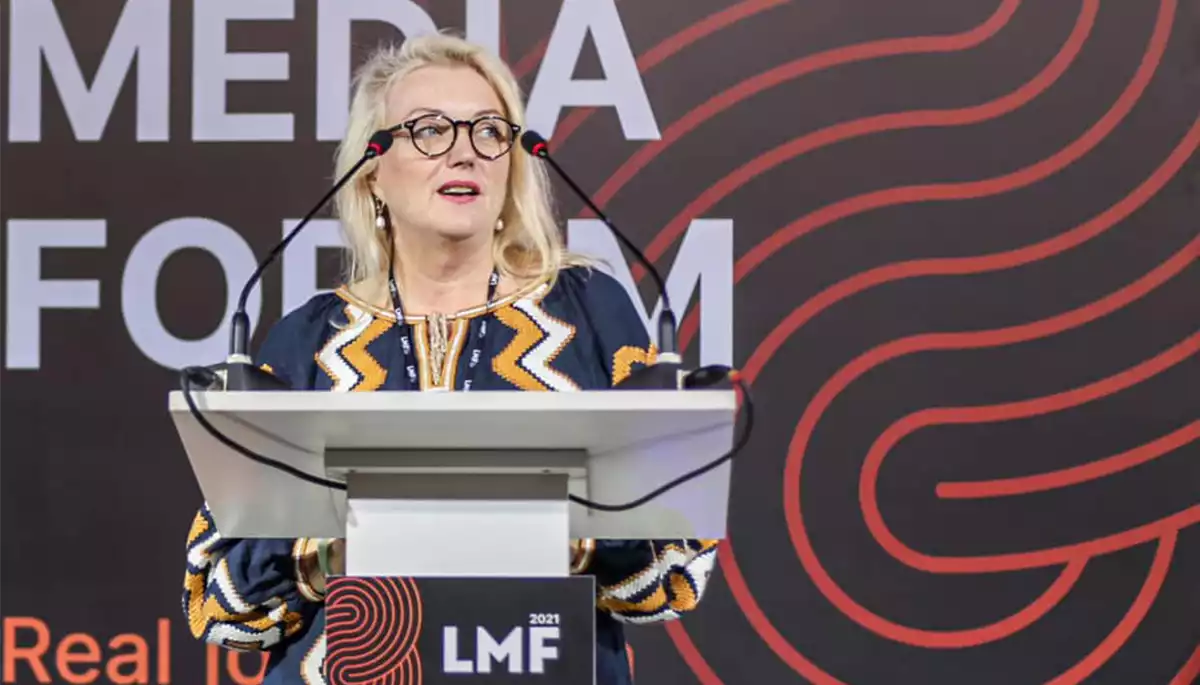
Gillian McCormack, Internews: I would not like to see a world where the poor people cannot get access to information
Gillian McCormack, Internews: I would not like to see a world where the poor people cannot get access to information
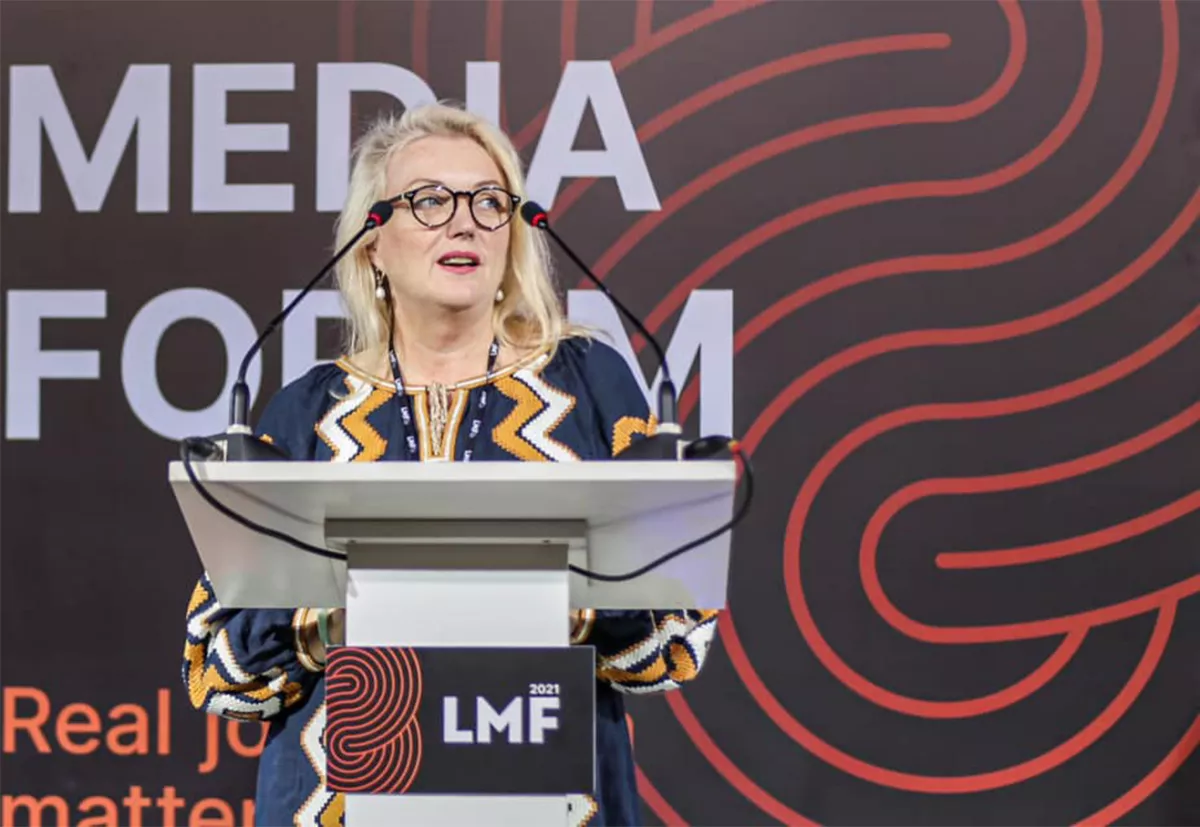

Читайже українську версію інтерв'ю.
Recently, many online media in Ukraine have begun to attract funding from their audiences through various models of crowdfunding and membership. Even those media that were established exclusively with grant support are working to attract these and other sources of commercial funding. On the one hand, these processes are fundamentally changing the market, gradually forming the habit of Ukrainians to pay for online media content. On the other hand, they face many obstacles: the advertising appetites of global technology platforms and population decline are just some of them.
Detector Media spoke with Internews Country Director in Ukraine Gillian McCormack about these processes. Internews is currently working on a five-year media development program in Ukraine – according to the organization, it is the largest such program in the history of our country. And during the years of independent Ukraine, Internews became the cradle of a large number of media projects, including those we know today as purely commercial (e.g., Vikna-novyny on STB).
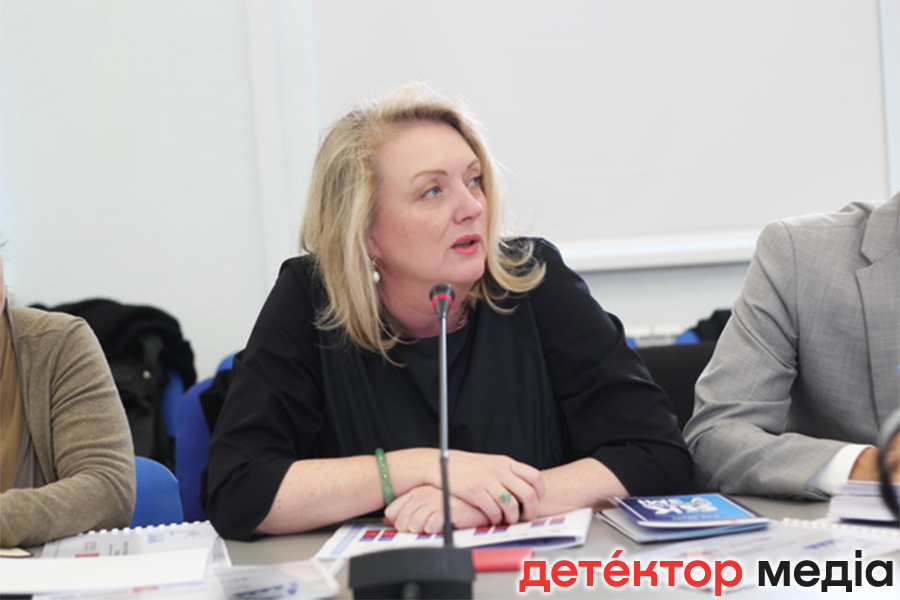
– Gillian, what kind of media funding models are effective for Ukraine, in your opinion?
– My personal dream is that media as much as possible would move towards a model that is more based on subscription and membership. I have always been a fan of the idea that the media are relying for their financing on their audience and not on some other kind of financiers: advertisers, local authorities or big oligarchs. The situation in Ukraine is not that different from the rest of the world. There is a crisis in advertising. There is an economic crisis in general that is affecting the media. And I think the best course of action for all media, and especially local small regional media with smaller audiences, is to have diversified sources of income.
As you know, newspapers did not use to have stories on the front page. They used to have classified ads and people bought newspapers because they needed either to buy or to sell something. And the stories that started appearing inside were sort of secondary factors of usefulness to people, something that kept them interested. So, I think that it has to be a kind of mixed bag with many different types of financing as possible, which means advertising, subscription / membership models, finding specific investors for specific tasks that you want to perform. And it also means applying for grants from organizations like mine.
– I have a quite unique experience for the current Ukrainian media market: I spent the first eight years in journalism in a publishing house that was fully financed by subscription to its printed publications. Then hard times came for us. On the one hand, we were disrupted by the rise of digital where we could not copy our business model. On the other hand, our main competitor was the oligarchic media. In the end, we closed. Now we see that several media have started using various forms of subscription and membership for their digital content: Ukrainska Pravda, Liga, Novoye Vremya, etc. But the revenue from these sources does not even cover their newsroom costs. What do you think about the perspectives of this approach?
– I think it is a process. When you look at the experience of other digital media that made it, you might feel as if it is a bit unfair because they are kind of unique. Do you like the Guardian? The Guardian had a huge amount of savings from all of the years when they were doing very well with the print publication. And then they started to use up all of that money and were in danger of closing down. When they first started doing digital subscriptions, nobody thought that they would be successful. And the amount of money that they were able to earn with that was, of course, a tiny fraction of their costs. It took them at least seven years to get to the stage of covering costs. So, you have to have quite a solid investment behind you to be able to carry on that length of time. But it is important to start now.
I see that it is not all roses. It is going to be difficult and take a long time. I have heard it from several Ukrainian organizations: “We did crowdsourcing five or six years ago and we made 20 bucks. It wasn't worthwhile keeping going.”However, people's willingness to experiment changed quite dramatically because of the pandemic. COVID-19 affected all media quite badly; advertising markets are already decimated. I talked to some colleagues from the National Media Association. They said that some of their members lost up to 90% of their revenue from advertising. When you are losing huge chunks of advertising, you have to start thinking about doing things that you were never doing before. So, if we can talk about anything positive that has come out of the pandemic for the media then I would say that it pushed people to go outside of their comfort zone and to do things that they felt they might not work.
Some media are already doing not too badly. Look at the Toronto TV's income. Their costs are not that high. Their income is pretty good. The proportion of money that they can get from crowdsourcing, from the loyalty of their audience is a substantial part of their budget. Anything that gives you even a small part of your budget is a bit of relaxation of pressure on the other ways in which you were struggling to cover your budget.
Another reason why I think it is important to start now: I do not see anybody regulating the big platforms on how they eat everybody else's lunch on advertising anytime soon. This is something that Ukraine could take a bit of a lead or try to follow where the European Union is going. At the moment, a lot of people consume media through social platforms and they do not even notice the name of the media and that media companies do not win any advertising revenue from a lot of those stories, mainly Google and Facebook benefit. So you have to think of some other way of monetizing your audience.
– Detector Media has also launched its membership in November. We are at the very beginning. But we already got an interesting insight that media professionals are not the only people who read us; we have a broader audience too. These people support the concept of critical thinking and want to understand the work of the media. We conducted focus groups with our loyal readers before the launch. And I remember a participant from the IT sphere. He said that for him it is something like a church tithe: he gives part of his income for the benefit of society, including volunteers and the media.
– I think it is an extremely useful exercise. And I am happy to become a member of your community. I am like the guy from your focus group: I believe in paying for something that I get use out of. I have digital subscriptions to American newspapers, a lot of British newspapers and Ukrainian media as well. I do not think I should get something for free since I can afford to pay for it. And I have a feeling that I am somehow more influential with those media companies: I feel more able to write to them and say that I do not like what they wrote, or I think that they should not use this sexist joke. I do not think it necessarily makes me more powerful. But it makes me feel part of a relationship, a little bit less like a passive partner and more of an active one.
And I am sure I am not the only one. There are a lot of people who have more disposable income and who would be willing to pay for newspapers. Everybody used to pay for newspapers. It was not a big deal. But it is another issue nowadays. For example, older people live much more modest lives financially, in small villages, without good Wi-Fi and money to spend on the media – I would not like to see a world where the poor people like them cannot get access to information and only rich people can. This would make the world even more unfair than it is already. In Internews, we do try to think about how everybody who needs information can get access to it.
– I have noticed one more motive in your words, which we also heard from our audience: they would like to have an opportunity to influence our content in one way or another. This is a certain challenge for us: to make sure that we understand the sense of this influence equally and can meet the expectations of our community members. Could you explain your thought in more detail?
– I think it is a fun experiment because it provides you with all sorts of ways in which you could offer people the chance to communicate their ideas with you. You could put the ideas on the table and even make somebody from your audience come to the newsroom for the day as a prize for a competition. And you could decide between some themes that you are already interested in doing and the ones that would be more interesting for your audience.
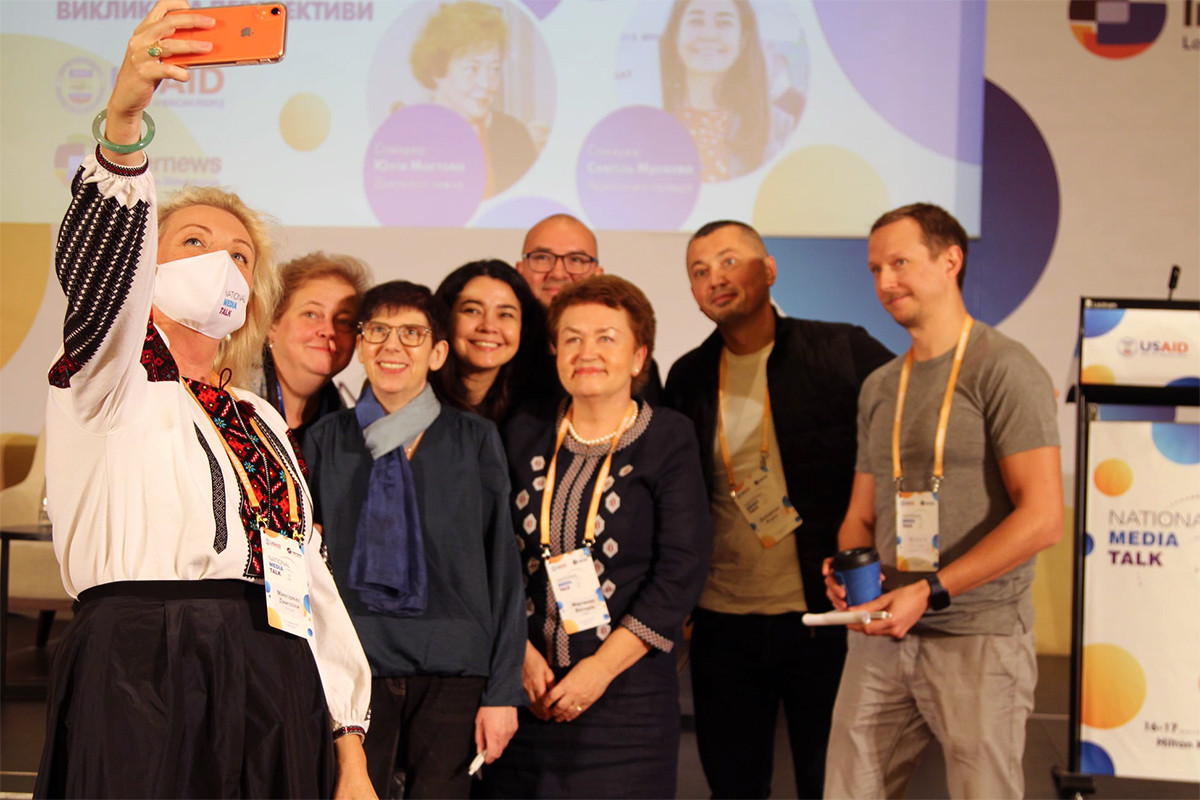
I am not suggesting necessarily that subscribers have to be intimately involved with the editorial process. And I do not think that that is what most people want to do either. But I think the freedom to decide to produce content that is in the interests of those people who are paying for a subscription is great. It means that you have to be more responsible to your readers; you cannot be like this kind of “totally free journalists” who only share their own thoughts about the world. You do have to pay attention to what the audience is interested in and what the audience feels is useful for them. I think that it is an enormous responsibility. But it is also a lot better than having to conform to the values or the desires of investor, oligarch or somebody who has a different view on what public service journalism is about.
– Some colleagues, whom we used to work with in print publications, are now working for TV companies including the oligarchic ones. And they say that they have been experiencing consistent déjà vu for the last 2 years. Because what they are discussing at TV strategic sessions, they used to discuss at previous jobs: their media are losing their audience; viewers switch to digital and there is no way to make equal money on the internet – as you correctly said, tech giants win the biggest share of a pie. And they are afraid of the fast development of foreign streaming platforms. What is the way out of this situation, in your opinion?
– That was one of the themes of the Donbas Media Forum this year: a conversation with the minister of culture and information policy about the new Media Law that would encompass a lot of different aspects of regulation, things that have not been regulated before like online media. And in particular, it is about the regulation of streaming, OTT services which are starting to eat TV’s lunch and dinner. This is one of the challenges of our industry. We are never sitting and relaxing even for five minutes. Something is always coming along to disrupt the media. And the disruption of the industry that has been caused by this switch to digital has been catastrophic. The problems that the TV companies started to acknowledge, as you say, a couple of years ago, are very serious. But less serious in the sense that the vast majority of them are not proper companies, in my opinion. They are not companies that rely on income from advertising and subscription to keep going, they are not profitable and being profitable is not the main reason why they exist.
It has always been the case here that if you were an extremely wealthy man – and most people we are talking about are men – then you had to have certain types of property. Like a big house, an expensive car – and owning a media company is just as much of a vanity project. Moreover, these owners think they can use their television to exert influence over the minds of the population and zombify the nation. I do not happen to think that you can influence people in this way, but I’m pretty sure that they do.
Certainly, I can imagine that it is difficult for people working in TV at the moment to think about what they might be doing in five years’ time to earn a living. Especially, the salaries at television are typically quite generous in comparison to other spheres and that is becoming less and less justified. However, our survey that we do with USAID financing every year started to show two years ago that television is losing ground to social media and online media. Last year it took over (the study was conducted in cities 50,000+. – DM). And this trajectory of information consumption could be explained, among other things, by the fact that the audience of TV stations is dying out. Population 55+ who rely on television more than other types of media is getting older. Also, those people do not spend a lot of money so they are not so interesting for advertisers.
On the other hand, there was the old song that video killed the radio star. And we know that it is not true. Television is not going to completely die out just like radio and newspapers are not completely dying out either. But how does television work and how will these individual companies be able to make money to survive at least in normal market conditions that are up in the air at the moment? If they want to remain instruments of political influence, that is, of course, going to be very challenging.
– By the way, two media groups, which are the most affected by the decrease in advertising revenues, have already suggested that advertisers move the upper limit of brand audiences from 54 to 64 years old. Because this is a challenge not only for television but also for the population of Ukraine, which is aging in general.
Have we already lost the chance to adopt the Media Law in its current concept? Or is there still a chance to adopt it?
– As an outsider who has been living here for about five years and who really loves this country I do find it hard to understand why this is a sticking point. The adoption of the Media Law is such an easy win for any government that is in charge. It does not cost you anything and you get to look like you are moving forward with your commitments and agreements with the European Union. Because the reason for adopting the Media Law in this instance was to bring Ukraine in line with the Audiovisual Media Services Directive. It is a quite technical question.
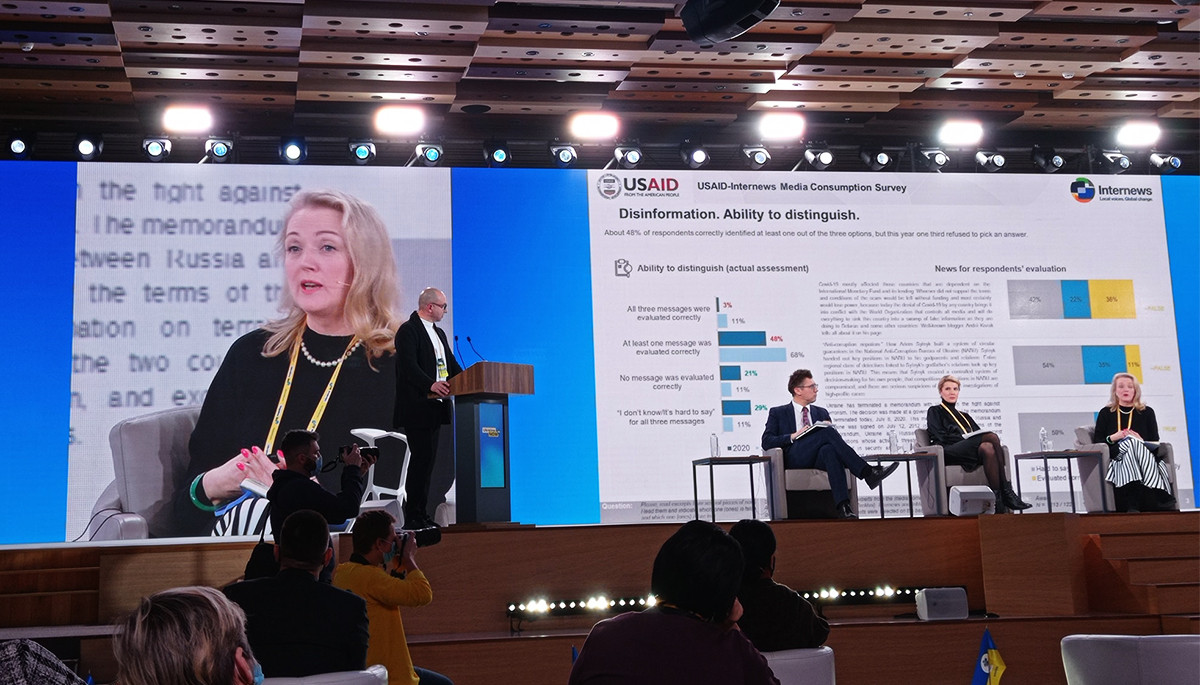
We were very pleased to see representatives of Internews' partner organizations in the working group of this draft law. There were some representatives of civil society, audience and industry interests so it wasn’t just a process controlled by oligarch-controlled media and their lawyers. And I was pleased to see that what they came up with is not bad. The draft law is not perfect because nothing that is made by committees is perfect – there is a proverb that a camel is a horse drawn by a committee. But it still ticks that box of bringing Ukraine closer in line with European legislation, which is the direction that we want to go in, right? I understand that there might be a number of reasons why it has got stuck. But they are not convincing to me.
The same with supporting Public Service Broadcasting. It was a great step in the right direction: finally transforming the moribund state broadcaster into Public Service Broadcaster. Over the years, we and other donors have been supporting it, but this is a drop in the ocean in terms of the financing that they need. They have always been having these stupid political problems with whichever government was in power and I cannot understand it.
– I can try to find something in common between UA:PBC and Dom TV channel: both want to increase their audience on the struggling linear TV market, both are funded from the state budget. UA:PBC is being promoted by the civil society, Dom is being promoted by the government. Does the development of these two projects make sense now?
– Sure. I have already exposed my hand: I am a fan of Public Service Broadcasting. I think it is a good investment of public money to have a media company that is directed to act in the public's interest, in interests of all people in society. People have to go somewhere where there is nobody who is influencing the news in favor of one or another political idea. It is a safe environment for information. Moreover, commercial media have to look for the greatest number of eyeballs. It is not in their interests to work for segmented audiences, national minorities, marginalized communities. But Public Service Broadcaster can do those things and should do them. In addition, the quality of children's programming in this country is not at all what it should be – especially when you consider the number of talented people who are able to produce it. And that is something that Public Service Broadcasting can invest in.
And as for Dom as a project, it is being presented as a resource where there is a focus on information that could be useful for people who live in occupied territories. I am in favor of any kind of government efforts to try to reach those people with information that is useful to know and make them feel not abandoned. And the quality of the content that you offer to these people is extremely important. Maybe I might not always agree with some of the priorities that the government has about communicating with those people. I mean, I would like to see Dom's output being based on what people in those territories would really like to know about. I do understand that it is very difficult to survey people in Crimea and occupied parts of Donetsk and Luhansk. But there are a lot of really talented sociologists in this country. We should be able to figure out how to do that.
There is a place for everything under the sun. But I prefer Public Service Broadcasting because it is very important to have a separation between the state institutions and the editorial decision-making. I am not sure that this is possible for a purely state broadcaster.






